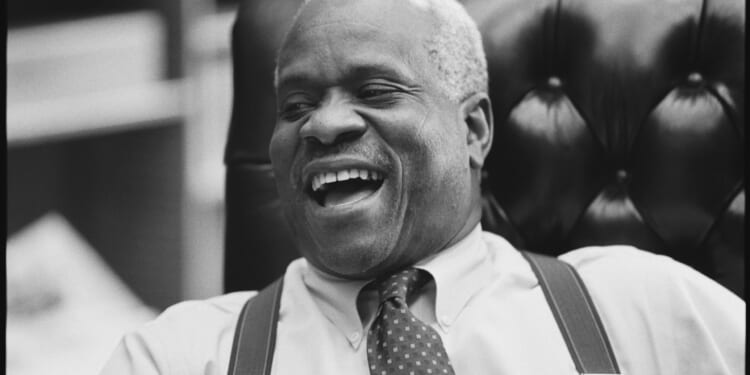Justice Clarence Thomas, who is about to celebrate his 34th anniversary serving on the United States Supreme Court, made news last week for stating what many of us see as foundationally obvious:
“I don’t think that any of these cases that have been decided are the gospel,” declared the justice. “And I do give perspective to the precedent. But … the precedent should be respectful of our legal tradition, and our country and our laws, and be based on something – not just something somebody dreamt up and others went along with.”
Speaking at Catholic University of America’s Columbus School of Law in Washington, D.C., Justice Thomas was referring the legal principle of “stare decisis” – the policy of courts following past decisions. The term is Latin for “to stand by things decided” and is rooted in 18th century English common law.
Abortion advocates, especially, love stare decisis only after a majority of Supreme Court justices concoct constitutional rights out of whole cloth – as was done in 1973 when the High Court created a so-called right to kill preborn children in the womb.
Justice Thomas noted this hypocrisy, joking “You apply it (stare decisis) rigorously when you want to overrule a prior precedent that you don’t like, but loosely when it’s one of yours. I can’t remember which book that’s in. I don’t think that is acceptable, right?”
In issuing a concurring opinion in the Dobbs case back in 2022, the historic decision that reversed Roe, Justice Thomas rightly pointed out that previous courts had made up the concept of “substantive due process” in the 14th Amendment to justify and enact all kinds of social shenanigans.
In fact, the now longest-serving justice even went so far as to call it “legal fiction” driven by a “liberal ‘rights revolution’” all with the intent of institutionalizing a “culture of permissiveness.”
Justice Thomas’ legal analysis triggered alarm bells in radical circles as they considered the constitutional fragility of recent cases involving such key issues as marriage and other matters of moral concern.
Assuming a refreshingly commonsense posture, the justice told law students and those gathered that logic and the Constitution should drive the analysis of what they look at on the Supreme Court.
“I think we should demand that, no matter what the case is, that it has more than just a simple theoretical basis. If it’s totally stupid, and that’s what they’ve decided, you don’t go along with it just because it’s decided.”
During his presentation, Justice Thomas likened his fellow justices to train passengers.
“We never go to the front to see who’s driving the train, where is it going. And you could go up there in the engine room, find it’s an orangutan driving the train, but you want to follow that just because it’s a train.”
The 2025-2026 Supreme Court train departs for a new term on October 6. How grateful we are to have Justice Clarence Thomas and his fellow level-headed judges onboard who look to the United States Constitution when deciding the cases before them.
Image from Getty.











